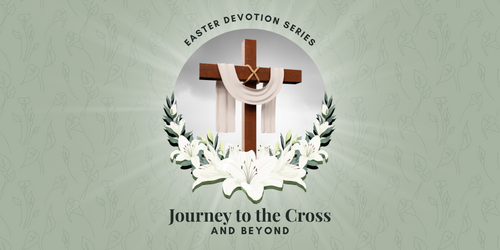“And He was withdrawn from them about a stone’s throw, and He knelt down and prayed, saying, ‘Father, if it is Your will, take this cup away from Me; nevertheless not My will, but Yours, be done.’” - Luke 22:41-42 (NKJV)
In the quiet of the Garden of Gethsemane, under the weight of impending suffering, Jesus wrestled with the task before Him. He knew what was coming—betrayal, arrest, unjust trials, beatings, and ultimately, the excruciating agony of the cross. As the pressure mounted, Jesus prayed fervently, seeking the Father’s will, asking if there might be another way to fulfill the mission He had been sent to accomplish. In His humanity, He longed for the cup of suffering to pass from Him. Yet, in the same breath, He fully surrendered, saying, “Not My will, but Yours be done.”
This moment of prayer reveals the depth of Jesus’ obedience and submission to the will of the Father. Though He was overwhelmed with anguish, He chose surrender over escape, trust over fear, and submission over self-preservation. His prayer—“Not My will, but Yours be done”—is a profound model for us, showing that true faith is not just about asking God to meet our desires but about aligning our hearts with His perfect will, no matter the cost.
The Garden of Gethsemane invites us to reflect on our own response to God’s will. Are we willing to trust Him and surrender, even when His plan is difficult or unclear? Jesus’ prayer challenges us to move beyond our own desires and comforts and to seek God’s will in all things, even when it requires sacrifice. It’s easy to trust God when life is going well, but what about when the road is hard, or when we face uncertainty and suffering?
In our own lives, we may encounter moments when we have to choose between following God’s will and following our own. It could be in decisions about relationships, careers, or facing trials that test our faith. Just as Jesus experienced profound agony in His surrender, we too may feel torn between our desires and God’s perfect plan. But in these moments, we are called to trust that God’s will is always better than our own, even if we don’t fully understand it at the time.
Are we willing to pray, “Not my will, but Yours be done,” even when it’s difficult? Are we ready to surrender our plans and desires, trusting that God’s way is always for our good and His glory?







